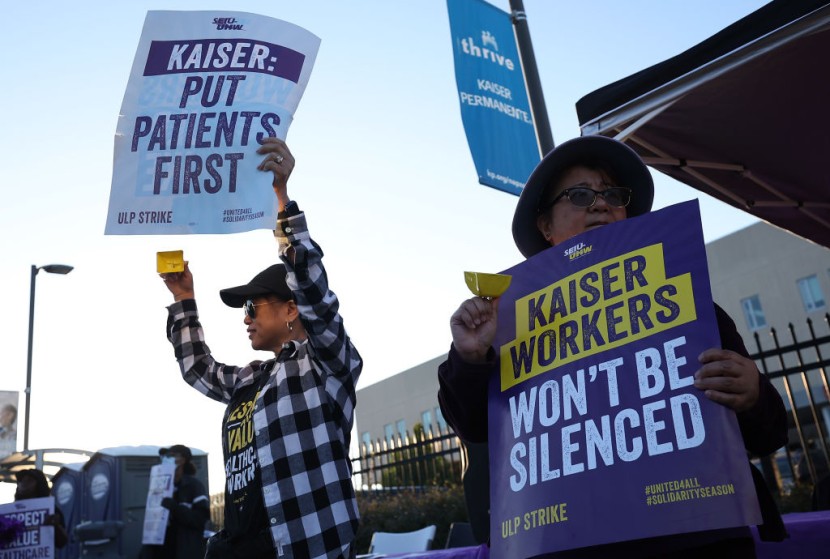
Kaiser Permanente protesters, who numbered roughly 75,000 healthcare workers, ended their 72-hour strike against the company as the parties involved have agreed to engage in more negotiations.
Wednesday marked the first day of the protest, which included picketers across California, Colorado, Oregon, and Washington. They are represented by a coalition of unions demanding higher salaries and better conditions, among other things.
Kaiser Permanente Strike
The issues they want addressed include a short-staffing crisis, exacerbated by the pandemic, and has left employees feeling overburdened and run down. About 200 workers from Kaiser facilities located in Virginia and Washington, DC, joined the picket lines for a day on Wednesday.
The healthcare workers who joined the strike included nursing staff, lab technicians, receptionists, and other medical workers. While the unions representing the workers and the company have scheduled bargaining sessions for the end of next week, the coalition said it could issue a 10-day warning after Saturday that may result in another round of strikes in a couple of weeks, as CNN.
Kaiser Permanente, considered one of the largest non-profit health plans in the United States, has argued that the labor crisis has affected the entire healthcare industry. It added that it would do "aggressive work" to hire more workers and noted that it had hired 10,086 people in union-represented jobs in 2023.
However, some picketers have warned that some hires were internal employees who shifted roles. They argued that there needs to be more action done to address a staffing shortage that the union has referred to as "unsafe." Additionally, they argued that raising employee salaries will attract more workers to the company.
The company has offered wage increases of 5% in the first three years of a new contract and a 4% raise in the final year to all unionized employees. However, the coalition did not accept that offer as it asked for a 6.5% increase in the contract's first two years and a 5.75% increase in the final two years.
Read Also: Kaiser Permanente Workers Could Go on Strike After the Expiration of Their Labor Contract with the Health Care Company
Addressing Union Demands
The coalition also said disagreements over job outsourcing are a major sticking point in recent negotiations. According to CNBC, it accused Kaiser of refusing to limit outsourcing and subcontracting jobs.
On Thursday, Kaiser Permanente said that tentative agreements have already been reached in several areas and noted that it is committed to negotiating a new contract with union employees.
The situation comes as acting US Labor Secretary Julie Su, who previously played a mediator during an all-night negotiating session last week, is set to return to California to "assist the parties in advancing talks" when they return to the bargaining table next week.
Kaiser continued to operate its hospitals and emergency departments throughout the three-day strike of union workers. According to Reuters, the walkout has pushed the company to the forefront of growing labor unrest in the healthcare industry and across the US economy, driven by the erosion of workers' earning power due to inflation and pandemic-related disruptions in the labor force.
Related Article: More Paid Sick Days for Californians Approved by Gov. Gavin Newsom








